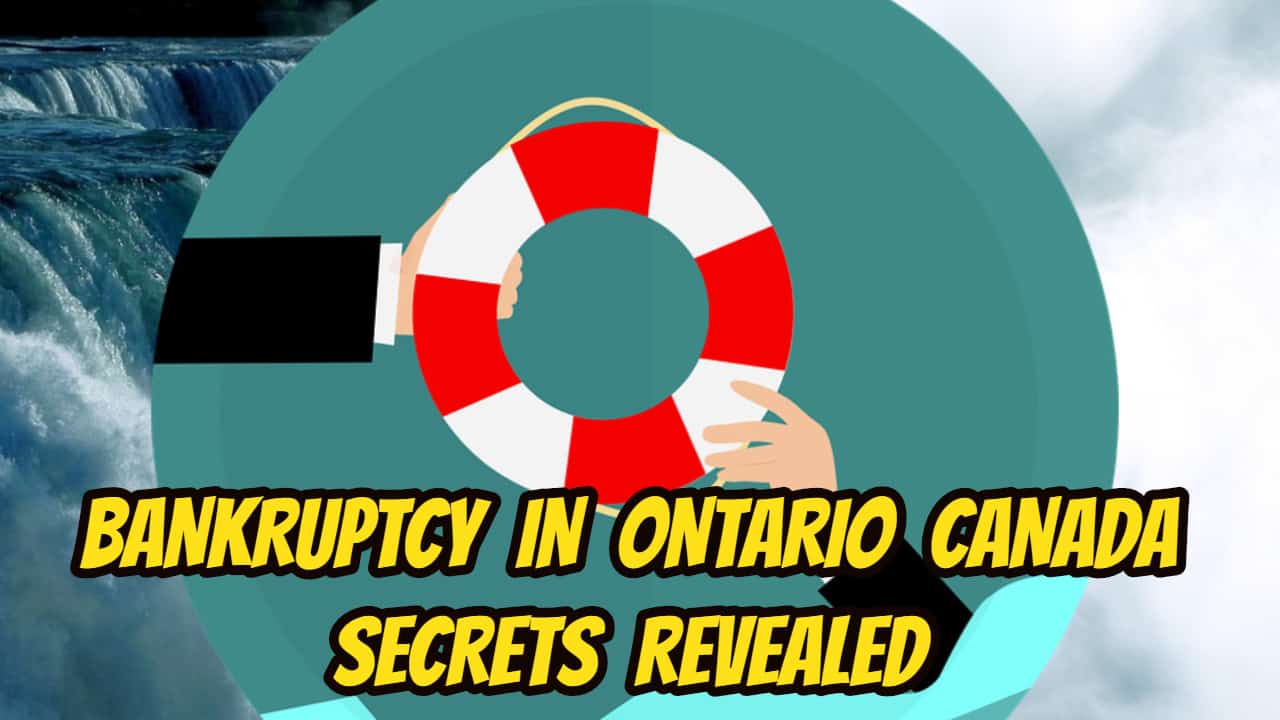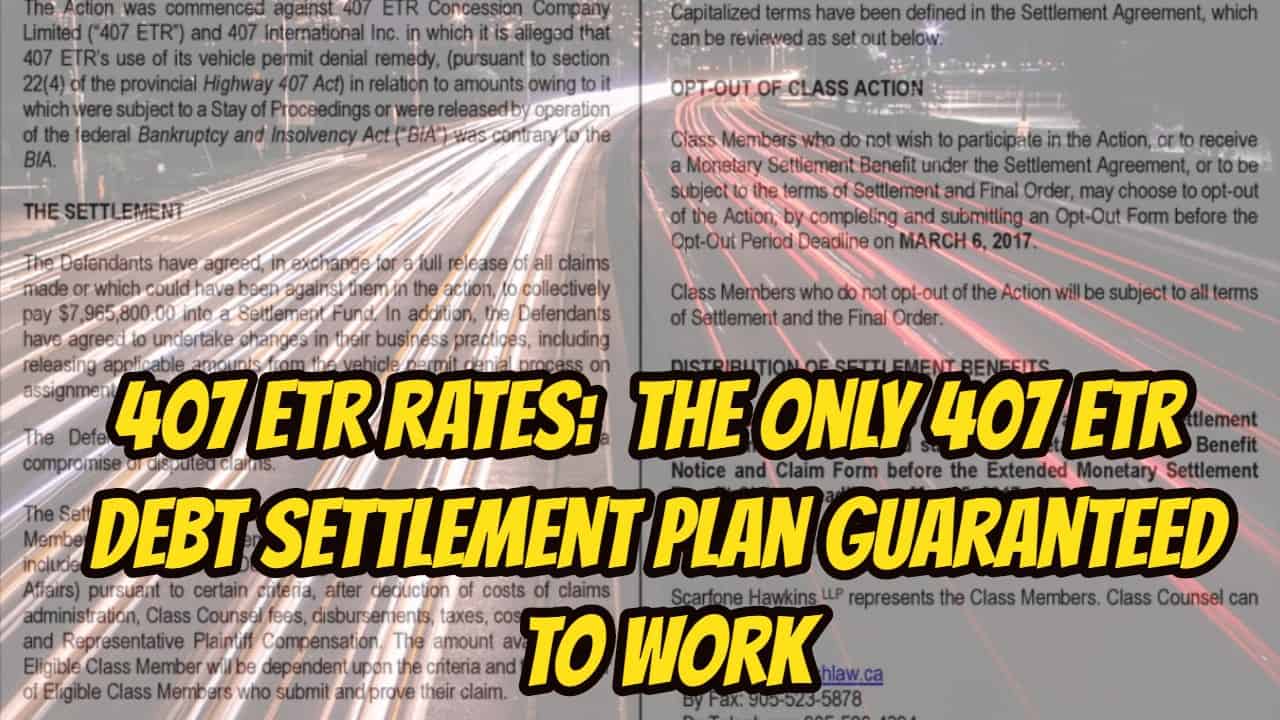[monkeytools msnip=”http://monkeyplayr.com/playr.php?u=5173&p=20475″]
Bankruptcy in Ontario Canada: Introduction
Most people are afraid of filing for bankruptcy in Ontario Canada and rightly so. It should be a last resort. There are many options available to people in financial trouble. All of them should be canvassed before deciding to declare bankruptcy.
In my professional practice, during the first free consultation appointment, we look at all options with the person to avoid bankruptcy. We naturally have a discussion about what it is and how it will affect the person. That way, the potential client is aware of all the options and can make an educated decision.
In this Brandon’s Blog, I discuss the questions that I am most often asked about the process. Hopefully, by the end of this blog, I will have demystified the process for you and helped in aiding your understanding.
The secrets we will show
Bankruptcy in Ontario Canada is definitely something nobody wants to talk about. So, therefore, it makes it seem very mysterious and secretive. It is also very scary. Therefore, from now on in this blog, so as not to scare you unnecessarily, I will try to refer to it only as “the B word”. I will only use the B word if the context requires it. This Brandon’s Blog will hopefully pull back the curtain in answering the most often asked questions thereby reducing the mystique and hopefully, your anxiety about this topic.
Where do I begin?
The first step is recognizing that you have financial problems and that bankruptcy in Ontario Canada might be your new reality. If you are having difficulty meeting all of your financial responsibilities or have actually quit paying all of your bills on time, you have a financial problem. As a licensed insolvency trustee (Trustee) we are the only professional licensed and supervised by the Federal government – Industry Canada (OSB).
If you are having financial problems, you must contact a Trustee as soon as possible, to have a free consultation to check your situation and to understand all the options available to you, including the B word. In that free appointment, you will learn that the B word may not be your only alternative to leave your debt behind. There are a number of choices that include, however, are not restricted to:
Should I declare the B word and what happens immediately if I do?
Declaring the B word is obviously a very serious step and a difficult personal choice. If the Trustee has properly explained all the realistic options available to you, it will make your choice much less scary. The first question is do you even qualify to file for the B word. You must be insolvent, owe more than $1,000 in unsecured debt to qualify for it in Canada.
As far as filing for the B word in Premier Doug Ford’s province, you must have:
- carried on business in the province during the year immediately preceding your B word; or
- lived in the province during the year before your B word; or
- where 1 or 2 above don’t apply, the majority of your property is in the province.
Note that the first test is that you are actually insolvent. Insolvent or insolvency is a financial condition. It means that you are:
- Unable to meet your obligations generally as they become due.
- You have ceased paying your current debts as they come due.
- The fair value of all of your assets is less than the total amount of your debts.
The B word is a legal state. Insolvency is a financial condition.
If I go for the B word, will I lose everything?
If you declare the B word, no, you will certainly not lose everything. There is a listing of things that are excluded from seizure in Ontario. The list is:
- Necessary clothing for you and your dependants.
- Home furnishings and appliances that are of a worth not more than $13,150.
- Tools and various other personal effects not worth more than $11,300, made use to earn revenue from your business. If you are an Ontario farmer, this amount increases to $29,100 for everything, including your livestock.
- One car or truck that is worth not more than $6,600.
- The cash surrender value of life insurance if your beneficiary is what is called a “Designated Beneficiary”.
- Your Registered Retirement Savings Plan (RRSP), Registered Retirement Income Fund (RRIF) or Deferred Profit Sharing Plan (DPSP) other than for any amounts contributed in the 12 months immediately preceding your date of bankruptcy.
- $10,000 of equity in your home but only if your share of the equity is less than $10,000 in total.
So if you go the way of the B word, based on this listing, you won’t lose everything. However, as you can see, if your share of the equity in your home is significant, the B word very likely is not for you. One of the other options is probably more suitable and you should pursue one of them.
What happens to the money I owe?
Once you go with the B word, all of your unsecured debts are frozen. Creditors cannot begin or continue any legal action against you. Any garnishee on either your wages or your bank account must come off. Normally if you owe money to Canada Revenue Agency (CRA) and have not kept up with a payment plan to them, they will garnishee your bank account which stops you from using it. The B word stops a CRA garnishee against your bank account or salary or wages also.
Similarly, a creditor who sues you and gets a judgement against you cannot continue any execution against your assets.
Once you are in the B word, the Trustee sends a notice to all of your creditors, along with a proof of claim form and instructions. With certain limited exceptions, the only remedy your unsecured creditors have is to file a proof of claim with the Trustee.
This does not apply to any of your debts owed to lenders who hold valid security against a specific asset. Examples would be a bank holding a mortgage against your home in return for the mortgage money or a lender who has security against your car for an auto loan.
What takes place to my salary or wages once I file?
Your income is not impacted by the B word process. You will continue to receive your normal salary or wages as you always have. You will need to complete Income and Expense Forms throughout detailing your and your spouse’s earnings and expenses. This is part of your budgeting procedure to meet one of the aims of the B word process; financial rehabilitation.
If your family income goes beyond specific requirements developed by the OSB, you will need to pay a part to the Trustee. This is called a surplus income payment requirement. In the first free consultation, I always tell potential clients whether they will have such a requirement. We also then look at that requirement, if any, to see if a consumer proposal would be more beneficial to the person than the B word.
Will the B word process get rid of my student loans?
If the B word date is within 7 years of when you stopped being a full-time or part-time student, your student loan debt will not be released by the B word process. Nevertheless, in particular situations, you might have the ability to make an application to the court for a discharge of your student loan financial obligations under the “hardship provision.” It is almost impossible to get that court-ordered discharge, but the slim possibility is there.
Will I still owe money after I file?
Only for a limited amount of debts. A discharge from the B word process does not cover:
- secured loans – home mortgage or vehicle loan;
- certain student loans (remember the 7-year rule I just mentioned?);
- penalties or fines enforced by the court;
- spousal support and alimony you have to make in your separation agreement or divorce proceedings; and
- any debts from a fraud.
What length of time will I be in the B word system?
The length of time you will be in the B word system depends on whether this is an initial or 2nd time and whether you have surplus income. The minimum length of time is 9 months. That is if you don’t have any surplus income, none of your creditors oppose your discharge and it is your first time.
If it is your first time, none of your creditors oppose your discharge and you do have surplus income, then the 9 months increases to 21 months.
If it will not be your first time, the length of time before you can get a discharge will depend on many factors. We certainly discuss it during your first free consultation.
Who will find out that I have filed?
As soon as you declare the B word your Trustee will tell your creditors, the CRA, the credit bureaus and the OSB. The filing is public information and it will show up in your credit history.
Where your non-exempt assets given to the Trustee are worth more than $15,000, there must be a legal notice of your B word filing in the local paper.
Exactly how will it impact my credit score?
A person who files drops down to the least favourable credit rating (R9) immediately. After you declare the B word, you must start to work on improving your credit score. Once you are discharged, you will have more options to improve on your credit score and rebuild your credit.
Notice of the B word process will stay on your credit record for 7 years after you get your discharge.
How is my partner or spouse affected by my filing?
Your spouse or partner is not directly impacted by your filing. Your spouse or partner will have to show his or her income as part of your surplus income calculation. The partner or spouse will be liable to repay any loan they have co-signed or guaranteed for you. They will also have to repay any credit card balance on your account for which they have and used a supplementary card to make purchases.
Will my bankruptcy impact my ongoing divorce case?
In Canada, the B word rules do not conflict with most of the family law system and process. So the Trustee will not get involved in your family law proceedings, with two main exceptions.
There is an aspect of your divorce in Ontario that will be affected because Ontario is an equalization province. There are generally only 2 parts of your divorce proceedings your Trustee will certainly get involved in. One is when it pertains to the person who filed legal rights to entitlement to an equalization payment. Second is when the debtor owns property (either jointly with the spouse or alone) and such property has not already been dealt with in the family law proceedings.
How do I choose the right Trustee for me?
Sometimes people just say that “I want to go to the closest Trustee near me”. If travelling or time is an issue for you then that approach is quite legitimate.
The better way is making an appointment for a cost-free no commitment first consultation with a Trustee. If you can, it is best to get a referral from someone you trust. Otherwise, perform an online search and see which Trustee’s website resonates best with you. Ask any kind of questions you might have about your particular situation and the options you may have.
If after that appointment you feel comfortable with the knowledge and demeanour of the Trustee, and you felt confident that you received proper answers to your questions, then great. If not, make an appointment for a free first consultation with a different Trustee. Use that experience to compare both to see who you would like to put your trust in. At the end of the day, you have to know who you will be dealing with and feel comfortable with them. You have to know that your Trustee gets you!
Do you have too much debt? Are you having a problem making your month-to-month bill payments? Is your company dealing with financial obstacles that you just can’t figure the way out of?
If so, call the Ira Smith Team today. We have years and generations of experience aiding individuals and businesses looking for financial restructuring or a debt settlement plan. As a licensed insolvency trustee, we are the only experts recognized, licensed and supervised by the Federal government (the OSB) to provide insolvency recommendations and solutions to help you prevent the B word.
Call the Ira Smith Team today so you can end the stress and anxiety financial problems create. With the special roadmap, we develop unique to you, we will promptly return you right into a healthy and balanced stress-free life.
You can have a no-cost consultation to aid you so we can repair your debt problems. Call the Ira Smith Team today. This will definitely enable you to make a fresh start, Starting Over Starting Now.








 CREDIT SCORES ONTARIO
CREDIT SCORES ONTARIO
